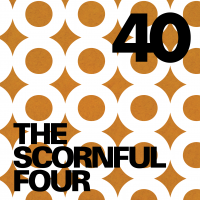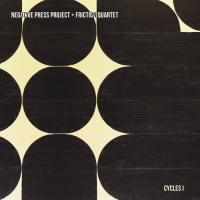Home » Jazz Articles » Album Review » Mike Allen: Change Is
Mike Allen: Change Is
In tandem with bassist Darren Radtke and drummer Dave Robbins, onChange Is, tenor saxophonist Mike Allen circumvents the potential pitfalls and makes a substantial contribution to the genre. A confident display of collective and individual improvisations, the recording is listener friendly to boot. Allen fashions a setting in which each player is free to revel in his own virtuosity but only while listening to and interacting with the others. Moreover, he keeps the audience in mind by taking care to present a sufficiently wide range of material, and making sure that none of the individual cuts overstays its welcome.
The irregular hiss and muted snap of Robbins’ brushes, combined with light bass drum inflections which criss cross the implied pulse, loosely establish a medium tempo at the onset of Gershwin’s “Love Walked In.” Allen’s playing of the melody clearly respects its contours, yet lets us know that he’s looking forward to the approaching improvisation. With Radtke and Robbins initially keeping things at a low boil, the saxophonist logically develops his ideas but never sounds staid. Eschewing exaggerated displays of technique, he begins to make an emotional impact in small increments; and as Robbins tosses rhythmic gambits at him from several angles, Allen becomes increasingly demonstrative.
Not unlike Allen’s inclination to acknowledge saxophonists from different eras of the jazz tradition without kowtowing to any one influence, Robbins’ solo feature on his own composition “At The Mark” exposes different perspectives of his talent. Starting with a relatively simple rhythmic pattern that moves from drum to drum and closes with cymbal crashes, he could be any one of a number of swing-era drummers. After repeating most of this sequence for a third time, he shifts into a triplet rhythm, which goes against the beat and temporarily upends the feeling of a strict pulse, akin to modern masters such as Elvin Jones and Tony Williams. Without pausing, Robbins then shows off some wicked chops while traveling around the set, responds to Allen’s stop-time figures with bebop oriented cadences, and concludes with a chorus which both stomps ahead and sways to and fro. Even during rapid single-stroke rolls, when struck hard, Robbins’ snare drum projects something decisive, like the slamming of a door.
The first three choruses of Allen’s turn on Johnny Hodges’ “Blues Almighty” are smooth, leisurely, and nearly devoid of the passion the blues normally evokes. At the beginning of the fourth chorus, a slight alteration in dynamics and attack signal a more forceful stance, and from here on Allen emits a palpable charge while Robbins eggs him on with several brusque fills. What begins as an earthy, somewhat conventional bass solo becomes delightfully twisted when Radtke goes off on a couple of fruitful tangents without losing continuity. Robbins’ four bar exchanges with Allen range from the restrained keeping of time on cymbals, snare, and bass drum to dense rudiment-sounding rhythms that unfold in a very limited space.
Track Listing
Love Walked In; The Difference Between Us; Falling From Grace; Love Is A Many Splendored Thing; Your Time Will Come; Donna Maria; One Up Man Ship; At The Mark; Blues Almighty; Streetcar Named Desire.
Personnel
Mike Allen
saxophoneMike Allen--tenor sax; Darren Radtke--bass; Dave Robbins--drums.
Album information
Title: Change Is | Year Released: 2001
Tags
PREVIOUS / NEXT
Support All About Jazz
 All About Jazz has been a pillar of jazz since 1995, championing it as an art form and, more importantly, supporting the musicians who make it. Our enduring commitment has made "AAJ" one of the most culturally important websites of its kind, read by hundreds of thousands of fans, musicians and industry figures every month.
All About Jazz has been a pillar of jazz since 1995, championing it as an art form and, more importantly, supporting the musicians who make it. Our enduring commitment has made "AAJ" one of the most culturally important websites of its kind, read by hundreds of thousands of fans, musicians and industry figures every month.























